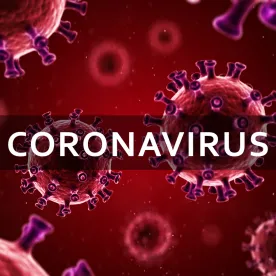The early days of the COVID-19 pandemic saw an unprecedented coming together of the health care industry to treat communities beset by a deadly virus that strained provider resources across the country. But just as normalcy returns, enforcement arms of the federal government have announced action against bad actors who took advantage of the COVID-19 pandemic to implement fraudulent schemes designed to specifically exploit the pandemic.
In separate actions on May 26, 2021, the Fraud Section of the Department of Justice (DOJ) and Center for Program Integrity, Centers for Medicare & Medicaid Services (CPI/CMS) announced cases against multiple defendants who perpetrated a variety of COVID-19-related scams on federal healthcare programs. The DOJ charged 14 defendants who are alleged to have defrauded the government of over $143 million in false billings in the aggregate, while the CPI/CMS began administrative proceedings against more than 50 providers who took advantage of CMS programs meant to increase care access during the pandemic.
Prevalence of Testing and Rapid Expansion of Telemedicine Creates Opportunity for Abuse
Based on the schemes cited by the DOJ, the ubiquity of COVID-19 testing appears to have offered ample opportunity for fraud and abuse, as a number of the charges leveled by the DOJ involved reimbursement for COVID-19 tests. A defendant charged in the Western District of Arkansas allegedly used beneficiary and provider information from prior laboratory tests to submit $42 million of fraudulent claims for a number of tests (including COVID-19 and respiratory pathogen panels) that were never actually ordered or performed by the patients, as well as claims for tests for deceased beneficiaries. A defendant charged in the Southern District of Florida allegedly paid patient brokers in exchange for referrals of Medicare beneficiaries who received unnecessary genetic and other laboratory testing that was improperly bundled with COVID-19 testing. DOJ alleged a $9.3 million kickback scheme that included submission of $422,748 of medically unnecessary claims related to the bundled testing. Unnecessary bundled testing also served as the basis for cases alleging over $70 million of false and fraudulent claim submission in the Northern District of California and a $5.4 million conspiracy to defraud the government in the District of New Jersey.
The announcements also included a first in the nation charge for exploiting CMS’s expanded telemedicine policies to submit claims to Medicare for telemedicine services that never occurred. As part of a $73 million conspiracy charge in the Southern District of Florida, the DOJ alleged that two individuals abused temporary relaxing of telehealth regulations to effectuate an illegal kickback scheme whereby the accused received referrals of Medicare beneficiaries for unnecessary laboratory testing in exchange for access to beneficiaries to bill the government for telehealth consultations.
In addition to testing and telemedicine-related schemes, the May 26th announcement also included a third criminal charge alleging improper use of monies received in connection with the Coronavirus Aid, Relief, and Economic Security (CARES) Act’s Provider Relief Fund (PRF). As the government continues to review applications related to PRF money, expect additional criminal actions against individuals who improperly received these funds.
Looking Ahead: Enforcement Outlook Going Forward
Given the scope of the CARES Act, both in terms of the total amount of funds earmarked therein ($2.2 trillion in March 2020, with an additional $1.9 trillion as part of the American Rescue Plan Act in March 2021) and the array of rapid changes to healthcare laws (i.e., expansion of telehealth and modifications to reimbursement), the identification of fraudulent schemes related to COVID-19 is unsurprising. In fact, the DOJ acknowledged that “the potential for fraud is significant” with COVID-19 relief programs. Most likely, we are in the early stages of identifying abuses related to the COVID-19 pandemic, and can expect to not only see additional malfeasance in bundling unnecessary tests and taking advantage of lax telehealth laws, but new as-yet-uncovered schemes that expose other aspects of the post-COVID healthcare system.



 />i
/>i

